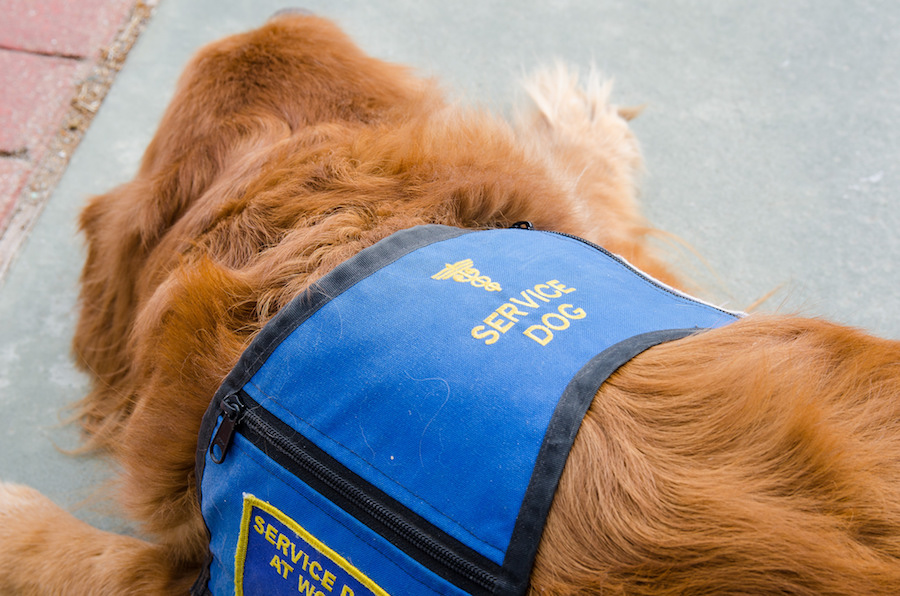
Service dogs are being used to an even greater extent to help those with mental health disabilities cope, a new UC Davis study has found.
The Americans with Disabilities Act (ADA) defines a service animal as “a dog that has been individually trained to do work or perform tasks for an individual with a disability.” These tasks could include reminding a person with depression to take medication or retrieving items for a person in a wheelchair. Although guide dogs and mobility dogs are used to alleviate the difficulties of the blind and those who are physically disabled for a long time, service dogs are now steadily emerging to aid people with “invisible disabilities,” such as autism and post-traumatic stress disorder (PTSD), as well as individuals that get seizures.
As more awareness is raised for the crucial topic of mental health, the more demand there is for service dogs for psychiatric uses. In fact, the study, recently published in Frontiers in Veterinary Science, showed that facilities that place psychiatric dogs are on the rise.
“From the facilities that responded, we saw a notable increase in autism service dog placement from 2013 to 2014,” said Sandra Walthers, the lead author and an undergraduate at UC Davis. “Internationally, the number of autism dogs increased 26 percent, and 16 percent in North America. This is important because it shows a demand for these dogs.”
Conversely, some countries, such as Japan, have very few facilities to place assistance dogs, as well as stricter policies regarding who is eligible to have an assistance dog.
“Currently, there are only 1,111 assistance dogs in Japan,” said Mariko Yamamoto, a researcher at Teikyo University of Science in Japan. “In the assistance dog law, only adults with visual disabilities, hearing disabilities and mobility disabilities can live with an assistance dog. People with other types of disabilities, such as epilepsy, diabetes, autism and [mental illness], are not eligible to have one.”
Yamamoto is currently working to increase the access of Japanese people to service dogs in a way that embraces the Japanese lifestyle, which may include using smaller service dogs.
Though not considered tasks by the ADA, psychiatric dogs, in addition to their administered tasks, also provide ample emotional support to people struggling with mental illness simply with their natural, lovable presence.
“It is such a relief to have that animal there supporting them,” said Lynette Hart, who co-authored the study and teaches classes on service dogs at UC Davis. “The dog is unaware of the mental disability, and the person doesn’t feel that stigma that they constantly feel in their social lives.”
The inclusion of mental illness in the list of disabilities for which one can acquire a service dog is an encouraging indication of the gradually increasing awareness of mental illness in society. The expansion of the traditional role of service dogs not only acknowledges mental illness as a real issue that seeks treatment, but also sympathizes with the plight of those individuals whose conditions are “invisible.”
Written by: Harnoor Gill — science@theaggie.org




